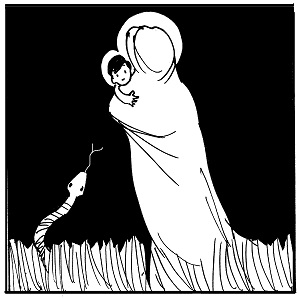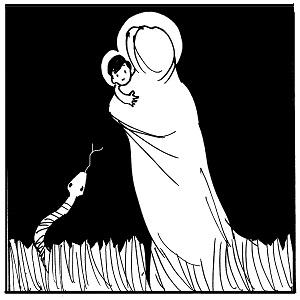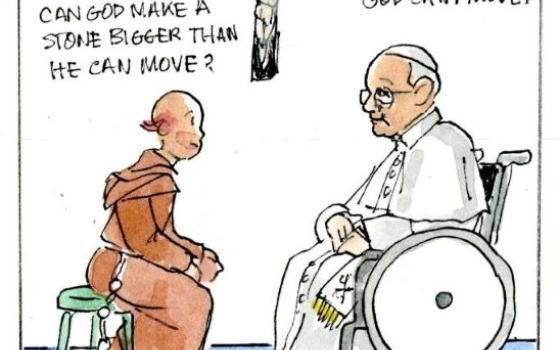

“The genealogy of Jesus Christ…” (Matt 1:1).
Gen 49:2, 8-10; Matt 1:1-17
Today’s Gospel reading traces Jesus’ identity from Abraham to David to the Babylonian Exile to Joseph his stepfather, covering three lists of 14 names each. The line is based on the erroneous assumption that the father was the sole source of identity, so women, regarded only as bearing and birthing the seed of the father, are not prominent in the genealogy.
Except for five women, who add immense meaning to the story of God’s promise of a Messiah. The widow Tamar enters the genealogy by duping her own father-in-law, Judah, into impregnating her with twins; Rahab is a prostitute who aids the Israelites in conquering the city of Jericho; Ruth, the Moabite woman, marries Boaz to become the grandmother of David; Bathsheba is the mother of Solomon by King David, who had her husband, Uriah the Hittite, killed in battle to cover their adultery. Finally, Mary of Nazareth, whose husband is Joseph, descendant of David, conceives Jesus virginally by the Holy Spirit.
What are we to make of this odd lineage as the vehicle for God’s promise? The long succession of patriarchal begats with anonymous mothers is interrupted by reminders that this famous genealogy, like all our bloodlines, includes male dominance, deception, murder, social and ethnic prejudice and, finally, mystery.
The only answer is that, unlike other cultural myths of how the divine has entered human history, the Bible asserts that God was already immersed in the full human story for generations before appearing at the birth of Jesus. The Incarnation is not God suddenly entering into our sinful world to save us, but God emerges from our history bearing the full burden of our weakness, confusion, violence and sin. God is with us — Emmanuel – because God has always been with us. The divine identity was in our DNA from the beginning, and a divine destiny awaits us at the end. In between, holiness, despite sin, is our natural state.
This is the good news that Advent prepares us to welcome. This is the best of times, the worst of times. We share the same human flesh and are subject to all its joys, pleasures, pain and suffering. Christ is among us to reveal us to ourselves.
Advertisement







